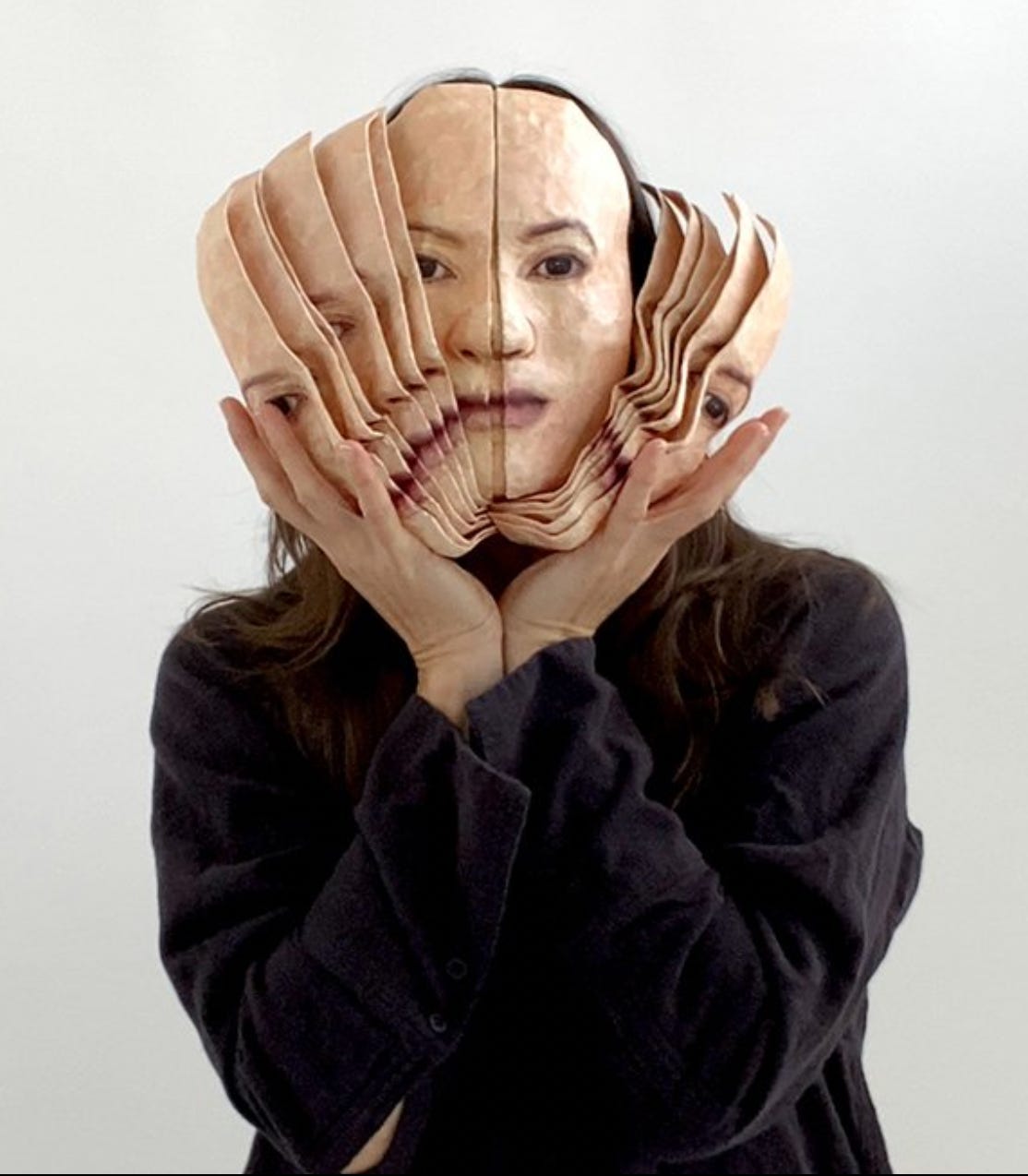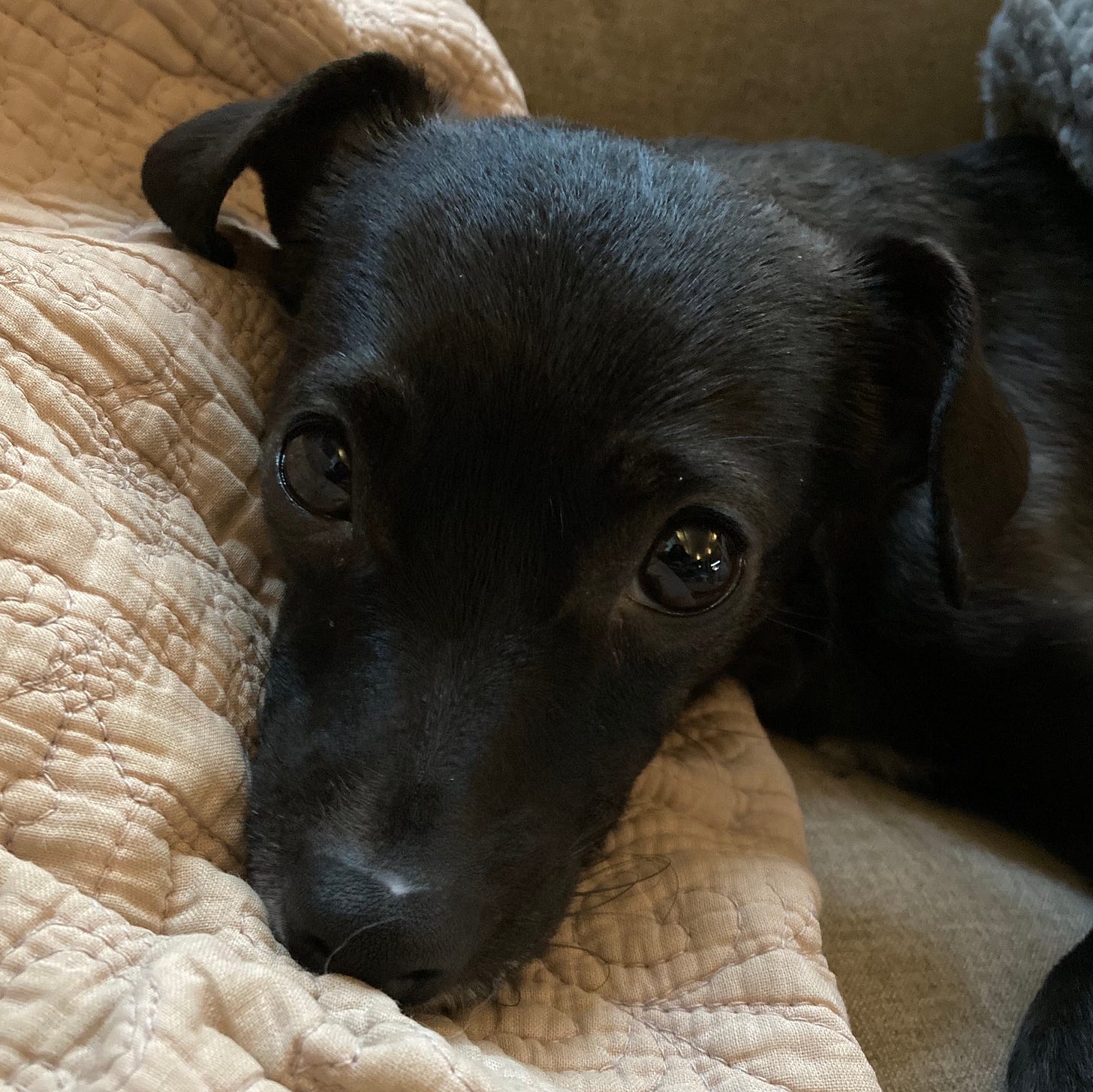From the Other Side of the Curtain
The vulnerable art of interviewing

I’ve spent the past two weeks of my Critical Writing and Visual Culture class talking to my students about the role that interviewing plays in an arts writing practice. It’s not a topic that can be covered in two weeks, of course—I’ve spent two decades on it and I still don’t have it completely figured out—but it’s an essential part of what we do.
Interviewing is a complicated and misunderstood dance, corrupted by a masculine transactional model that goes something like this:
The interviewer must keep the subject at a healthy remove so that the interviewer can claim objectivity, despite being unable to achieve it.
The subject must give over control of their narrative to a complete stranger in exchange for exposure.
First, it’s important to note that objectivity doesn’t exist. It simply doesn’t. All writers unavoidably imbue their writing with their biases and humanity and (mis)perceptions and framing, no matter how hard they try to exorcise those things from their work. So it feels more honest to me to eschew objectivity than it does to pretend it’s possible.
Second, I wouldn’t strive for objectivity even if I could. When I’m writing about an artist’s work, I don’t want to artificially remove myself from them. I want my heart to be yoked to theirs in some small way and for that to come out in the work. I want to gush and be dumbfounded and struck by them, and to express all of those things in writing.
I don’t believe that an interview can be transactional and fulfill its purpose. If you enter into one hoping to extract specific information from a person, it’s over before you’ve begun. You can either treat a person as something to be mined for whatever material you’re seeking—which invariably leads to emptiness and disappointment—or you can approach them without expectation, allowing your curiosity to guide you.
It’s not uncommon for me to spend hours interviewing someone and to realize afterward that I didn’t ask a single one of my prepared questions. Those are my favorite interviews because it means that our conversation was so collaborative and generative that I didn’t need to look at my piece of paper once. (And it probably won’t surprise you to hear that those are the interviews that lead to the best writing.)
When done well, an interview is simply a thoughtful conversation that leaves both parties feeling more connected to each other and to the world.
Asking someone for an interview, whether they’re famous or completely unknown, is incredibly hard for me. I only ever approach people I am genuinely awed by, so it feels as vulnerable as asking someone on a date. Requesting an interview is my way of saying, “I admire you. I want to see and know you as wholly as you will allow me to. I want to learn about what truly matters to you.”
So, when a person declines, or never replies, or—worse yet—responds to my interview request with a little heart emoji as if to say, “Isn’t that cute,” but then never acknowledges it again, I want to curl up in a ball and die. If I observed more of a healthy distance, if I didn’t allow myself to get emotionally involved in who and what I write about, this wouldn’t happen. But that’s not how we do things around here.
If I’m not risking something of myself, none of this is worth doing. The interviewer must be willing to give as much or more to the process as the interviewee, because the interviewee has the most to lose. As interviewers, we must make ourselves open and vulnerable in order to provide an opportunity for the other person to do the same, should it feel safe for them. In so doing, though, we also leave ourselves open to rejection and little heartbreaks along the way.
And, after the interview, we have the enormous responsibility of making sure that our writing is worthy of its subject. I have been told by countless editors that I shouldn’t care what my subject thinks about my article once it comes out. I am not, nor will I ever be, that kind of writer. What my subject thinks about my article is the thing I care about most.1 I lose sleep the night before an article publishes, hoping that the person I’ve written about will recognize themselves in my words. When someone has given me hours of their time and trusted me with important parts of their story, I want them to feel seen, heard, and understood by the portrait I've drawn of them.
I write fewer profiles and conduct fewer interviews during periods when my heart is tender because even the tiniest possibility of disppointing or hurting someone is more than I can bear. I have to feel strong in order to be up to the task.
Ultimately, most of what I’ve learned about interviewing over the years has involved rejecting everything I was told about how they should be done. An interview, at its core, is an expression of care. It requires taking a risk to ask a stranger if they would be willing to take a risk along with you. It requires enormous amounts of preparation and research. It requires you to focus all of your attention and energy on someone for many hours, in a way that both of you will be unaccustomed to, and in a way that will leave you feeling completely wrung out from having just transformed a perfect stranger into someone newly precious to you.
A Space Just For Us
If you haven’t joined our chat thread yet, it’s now available for Android and iPhones (desktop coming soon). Please come by and say hello:
In Other News
This is my new roommate, Walter. If there are any typos in this essay, it’s because he’s been lying on my arm for the past ten days and it’s very hard to type with one hand.
This is in the case of writing a review of an artist’s work, a profile, an essay, or a feature that includes an interview with them. This does not apply, for example, to the heavily reported pieces in which I interview people in order to illuminate systemic inequity, abuses of power, or instiutional failure.



In my opinion it is your emotional connection that makes your writing so strong. And I am happy to see you’ve opened your heart to a new companion ~ Walter looks like a total love.
As an interviewer with journalism training, I liked this post a lot. I also care a lot about what my subject thinks about how I’ve told their story, and at the same time want to make the piece interesting and worthwhile for readers.